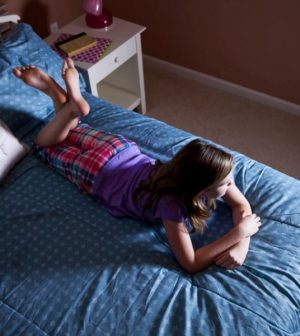- Could Your Grocery Store Meat Be Causing Recurring UTIs?
- Are You Making This Expensive Thermostat Error This Winter?
- Recognizing the Signs of Hypothyroidism
- 10 Strategies to Overcome Insomnia
- Could Artificial Sweeteners Be Aging the Brain Faster?
- Techniques for Soothing Your Nervous System
- Does the Water in Your House Smell Funny? Here’s Why
- Can a Daily Dose of Apple Cider Vinegar Actually Aid Weight Loss?
- 6 Health Beverages That Can Actually Spike Your Blood Sugar
- Treatment Options for Social Anxiety Disorder
The Reality of Watching Reality TV

When it comes to analyzing the effects of watching reality TV, well, it’s complicated. While some see these shows as a brief escape from daily life, they can have negative effects on some viewers, including impressionable teens.
Researchers asked 1,100 girls aged 11 to 17 about their viewing habits. On the one hand, watching reality TV was tied to increased self-esteem and the level of respect girls expected in dating relationships. On the other, it also was tied to an increased focus on appearance and a willingness to compromise values for fame.
A study led by Central Michigan University psychologist Bryan Gibson found that some people become more aggressive after watching shows portraying relationships punctuated by aggression, such as bullying and manipulation. Gibson’s conclusion: These shows aren’t the “harmless entertainment” people think they are.
Some series have other types of unhealthy consequences. For instance, viewers of reality TV beauty shows are more likely to seek out harmful tanning, from both tanning beds and sun exposure. Others can even influence a person’s desire for cosmetic surgery.
Because kids are often most vulnerable to these effects, watch their favorite shows with them and talk about them afterward, contrasting the performers’ behavior with your family’s values and principles.
Stress the differences between real life and reality TV and point out that on some shows these “real people” are actually acting from scripts or directions to behave in a certain way to heighten the drama.
More information
Mott Children’s Hospital of the University of Michigan has a workbook to help parents guide kids through the digital media landscape including how to create a family media plan to control exposure.
Source: HealthDay
Copyright © 2026 HealthDay. All rights reserved.










